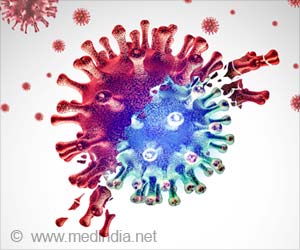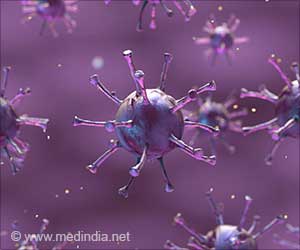A recent study could provide insights into the neurological symptoms linked to long Covid, including brain fog, lethargy, and depression.

SARS-CoV-2 infection causes dopaminergic neuron senescence
Go to source) The findings, published in Cell Stem Cell, suggest that further research on this finding may shed light on the neurological symptoms associated with long Covid, such as brain fog, lethargy, and depression. The study showed that dopamine neurons infected with SARS-CoV-2 stop working and send out chemical signals that cause inflammation.Normally, these neurons produce dopamine, a neurotransmitter that plays a role in feelings of pleasure, motivation, memory, sleep, and movement. Damage to these neurons is also connected to Parkinson's disease.
SARS-CoV-2 Can Trigger Senescence in Dopamine Neurons
"This project started out to investigate how various types of cells in different organs respond to SARS-CoV-2 infection. We tested lung cells, heart cells, pancreatic beta cells, but the senescence pathway is only activated in dopamine neurons," said Dr Shuibing Chen, director of the Center for Genomic Health, at Weill Cornell Medicine."This was a completely unexpected result."While the clinical relevance of these findings is still unclear, since dopamine neuron senescence is a hallmark of Parkinson's disease, the researchers suggest that long Covid patients should be monitored for an increased risk of developing Parkinson's-related symptoms.‘Approximately five percent of dopamine neurons exposed to SARS-CoV-2 were found to be infected. #COVID #Parkinsonsdisease #neurons’





To date, Parkinson's symptoms have not been overly reported in population studies. Chen led the effort to generate multiple cell types from human stem cells and tested them to see which ones SARS-CoV-2 could infect. They also studied autopsy samples from patients infected with the virus to confirm their observations from the lab-grown cells. "The infection rate of dopamine neurons isn't as high as lung cells, the virus's main target, but even a small population of infected cells can potentially have a severe effect," said Chen. Interestingly, not all neuronal cell types were vulnerable to viral infection. The researchers observed that cortical neurons were not permissive to SARS-CoV-2 infection under identical experimental conditions."We discovered that only dopamine cells had the senescence pathway activated," said Chen. In stark contrast, the genes in the senescence pathway were not significantly turned on with SARS-CoV-2-infected lung organoids, pancreatic cells, liver organoids, or heart cells.
The researchers found that the gene signatures -- the unique pattern of gene activity -- from the infected lab-grown dopamine neurons and the dopamine neurons from Covid autopsy samples were the same. This included genes that triggered chemical signals for inflammation.
The researchers next identified three drugs that blocked SARS-CoV-2 infection, thereby preventing the dopamine cells from senescence: riluzole (treats ALS or Lou Gehrig's disease), metformin (treats diabetes), and imatinib (treats cancer). Further study on these drugs may lead to a way to prevent the virus's attack on the brain, the team said.
Reference:
- SARS-CoV-2 infection causes dopaminergic neuron senescence - (https://linkinghub.elsevier.com/retrieve/pii/S1934590923004423)















